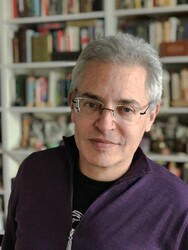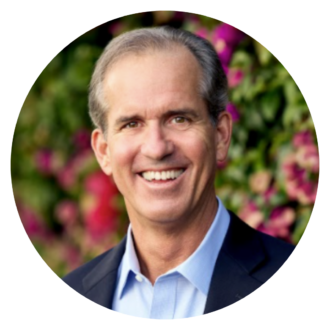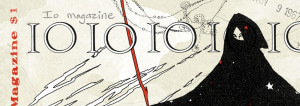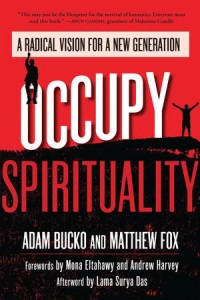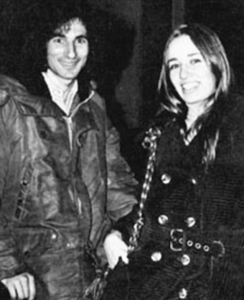John Oakes: The Fast: The History, Science, Philosophy, and Promise of Doing Without
March 2, 2024 by David
Filed under Non-Fiction, WritersCast
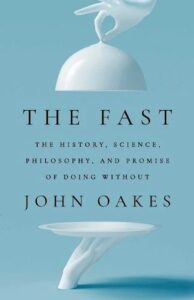 The Fast: The History, Science, Philosophy, and Promise of Doing Without—John Oakes—Avid Reader Press / Simon & Schuster—Hardcover —9781668017418—320 pages—$30—February 13, 2024—ebook versions available at lower prices
The Fast: The History, Science, Philosophy, and Promise of Doing Without—John Oakes—Avid Reader Press / Simon & Schuster—Hardcover —9781668017418—320 pages—$30—February 13, 2024—ebook versions available at lower prices
If you’re expecting to find a “how to guide to fasting” you will have to look elsewhere. John Oakes is far too good a writer and thinker to spend his time writing something simple like a guide book or even a “rah rah” tome aimed at encouraging you to take up the idea of “intermittent fasting” for yourselves. You might decide to try it out after reading The Fast, but that’s not his purpose and not why you should want to read this book. If you are already engaged in fasting, you should read this book. Perhaps it will be most especially useful during the meditative moments while you are in the midst of your own fast.
Oakes is more interested in a deeper approach to this practice, giving it historicity and enabling us to explore for ourselves how denial of a core bodily function can alter consciousness and help us better understand ourselves. This kind of antidote to the habits of modern life does have an appeal to many of us, but even if you are not going to be a practitioner, you will find yourself captivated, as he is, by the science, history, philosophy and spiritual background of fasting and the denial of physical needs. For Oakes, the ideas and the connection to human spirituality are as important as the specific practices themselves. I’m glad of that, as it makes reading this book that much more rewarding to engage with.
I will also note that Oakes, who has been an editor and publisher for many years, is a really terrific writer and therefore you can read this book for the pleasure good writing affords. As I am sure many of you who listen to this podcast have noticed, there are a lot of badly written books out there and no one wants to spend their limited time reading them. Given the vast number of choices of what to read, it is a particular joy to discover a really good writer. Bravo Oakes for spending a lifetime learning how to write, and bravo Avid Reader Press for publishing this book. I hope you will consider reading it yourself after you listen to our conversation here. Whether you decide to fast or not. For myself, much as I like this book, I am happier eating than not, even if it is an indication of my generally shallow approach to spirituality.
I’ve known John Oakes for a number of years through our mutual involvement in independent publishing. He is currently the publisher of The Evergreen Review. He is also editor-at-large for OR Books, which he cofounded in 2009. OR has been a singularly contrarian publisher for many years, built to demonstrate an alternative approach to traditional reliance on a certain popular online bookseller. Oakes has written for a variety of publications and The Fast is his first book.
We had alot of fun talking together about John’s book. Enjoy…
Podcast: Play in new window | Download
William J. Peters: At Heaven’s Door-What Shared Journeys to the AfterLife Teach about Dying Well and Living Better
January 25, 2022 by David
Filed under Non-Fiction, WritersCast
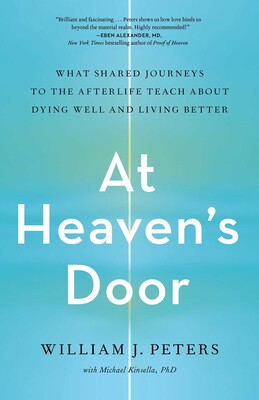 At Heaven’s Door – What Shared Journeys to the Afterlife Teach about Dying Well and Living Better – William J. Peters – with Michael Kinsella – Simon and Schuster – 978-1-9821-5042-6 – Hardcover – 248 pages – $26.00 – January 18, 2022 – ebook editions available at lower prices
At Heaven’s Door – What Shared Journeys to the Afterlife Teach about Dying Well and Living Better – William J. Peters – with Michael Kinsella – Simon and Schuster – 978-1-9821-5042-6 – Hardcover – 248 pages – $26.00 – January 18, 2022 – ebook editions available at lower prices
William Peters is a therapist who had worked for many years with people at the end of their lives. In 2000, when he was volunteering at the Zen Hospice Project in San Francisco , he experienced something very similar to what mystics describe and what some people who have been close to death have reported, the sense of floating in midair, completely out of the body. In this case, he was with his patient in this “other dimension” and the dying person looked at him and smiled. Peters himself returned to his body, but the patient remained unconscious and soon died.
This powerful experience set Peters off on what has become the journey of his life’s work. He began searching for other people who had had similar experiences. He spent more than twenty years finding people, talking to them, and meticulously categorizing their stories to identify the patterns and characteristics of what he calls the “shared crossing” experience. What is really interesting is how similar all these experiences are, regardless of age, gender, background, cultural origin, etc. Many of these stories are included in this book, as people have had visual and sensory effects that are to them evidence of another dimension, that brought with them powerful emotional after-effects that in most cases stayed with them and completely changed their understanding of reality.
Apparently this kind of experience is known to many in the hospice community and even some otherwise rationalist medical practitioners. The book is filled with stories of all kinds, some are spouses and parents of loved ones lost either suddenly or after long illnesses, and some stories are told by individuals who were simply present at someone’s final passage and were chosen to share the experience, or in some cases to help usher the dying person into the light of this “afterlife” dimension.
After years of research and documentation, Peters has a lot to say about what all of these experiences might mean for us – the living. Regardless of our outlooks and beliefs, we all want to know what will happen to us when we die, and those who have shared in the death experience as reported here might allay our all too reasonable fear and help explain what comes next. Our culture does not embrace the experience of death as many other cultures have done – our medicine tries desperately to stave off death, and we are all so attached to living, with no training or understanding of death, we push it away completely.
It does not matter whether you embrace or reject the stories told here, or the literal descriptions of the “afterlife” and the other dimensions the dying experience. Maybe what we experience at death is just a biological projection, after all. Whatever you may choose to believe, knowing more about death, understanding the end-of-life passage, and better integrating it into our lives is important for our psyches.
William Peters is the founder of the Shared Crossing Project and director of its Research Initiative. He has spent many years studying end-of-life experiences. Peters worked as a hospice volunteer with the Zen Hospice Project in San Francisco and as a teacher and social worker in Central and South America. A practicing grief and bereavement therapist, he holds degrees from Harvard’s Graduate School of Education and UC Berkeley.
I had a terrific conversation with William Peters. The book, and my conversation with the author have stayed with me and I continue to explore where it has taken me. It appears to be a simple book, but comes with many layers of understanding and thoughtfulness for the attentive reader.
Visit the Shared Crossing website here.
Podcast: Play in new window | Download
David Wilk interviews Lindy Hough of North Atlantic Books and Io Magazine
May 9, 2016 by David
Filed under Ebooks and Digital Publishing, Publishing History, PublishingTalks, The Future
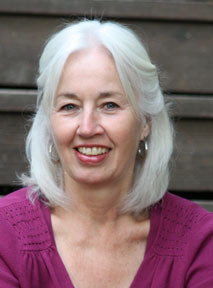 Publishing Talks began as a series of conversations with book industry professionals and others involved in media and technology about the future of publishing, books, and culture. As we continue to experience disruption and change in all media businesses, I’ve been talking with some of the people involved in our industry about how publishing might evolve as our culture is affected by technology and the larger context of civilization and economics.
Publishing Talks began as a series of conversations with book industry professionals and others involved in media and technology about the future of publishing, books, and culture. As we continue to experience disruption and change in all media businesses, I’ve been talking with some of the people involved in our industry about how publishing might evolve as our culture is affected by technology and the larger context of civilization and economics.
I’ve now expanded the series to include conversations that go beyond the future of publishing. I’ve talked with editors and publishers who have been innovators and leaders in independent publishing in the past and into the present, and will continue to explore the ebb and flow of writing, books, and publishing in all sorts of forms and formats, as change continues to be the one constant we can count on.
It’s my hope that these conversations can help us understand the outlines of what is happening in publishing and writing, and how we might ourselves interact with and influence the future of publishing as it unfolds.
Over the past few years, I’ve talked to several independent publishers in an effort to document the extraordinary period of the past 40 years, which has been a kind of golden age of innovation and creativity as publishing has literally been redefined. The list of great publishers established during this time in almost every category of publishing is amazing.
One of those presses that has had a special impact on my own work is North Atlantic Books, founded by Richard Grossinger and Lindy Hough as an outgrowth of their literary journal called Io, which they began together in 1965 when they were undergraduates at Amherst and Smith Colleges respectively. Richard and Lindy have been mentors, friends, and colleagues of mine for more than forty years, and their influence on my thinking about writing, ideas and books has been profound.
Since both Richard and Lindy are writers and editors with their own individual interests and styles, I thought it would make sense to interview each of them separately for this series of conversations. These two conversations can stand independently or together. They tell two versions of an amazing and almost mythologic story, which I hope listeners will find as compelling as it was for me when I spoke to them.
Io Magazine traveled with Lindy and Richard, moving to Michigan, Maine, Vermont and eventually California. Io is one of a number of influential literary magazines established in the sixties and seventies, publishing poets, film-makers and visual artists, many of whom were related to what has become known as the New American Poets, with influences ranging from Black Mountain College and the New York School to hermeticism and mystical spirituality. Io was singular in that it was most frequently a one-subject magazine, and this led eventually to the establishment of North Atlantic Books, which was incorporated in 1974 as a non-profit literary publisher in California.
North Atlantic Books has become one of the most successful and influential independent presses in America with a strong focus on spirituality and alternative health, while continuing its commitment to literary publishing.
Lindy graduated from Smith College and received an MFA in Creative Writing at Goddard College. She is the author of seven books of poetry, non-fiction, and fiction (including one book I published in 1978, the excellent Outlands & Inlands). She has taught literature and writing in Michigan, Maine, Vermont and California, and is currently finishing a novel.
This is the “official” description of North Atlantic Books, taken from its website:
North Atlantic Books is a nonprofit publisher committed to an eclectic exploration of the relationships between mind, body, spirit, and nature. Founded in 1974 by Richard Grossinger and Lindy Hough, NAB aims to nurture a holistic view of the arts, sciences, humanities, and healing. Over the decades, it has been at the forefront of publishing a diverse range of books in alternative medicine, ecology, and spirituality. NAB is the publishing program of the Society for the Study of Native Arts and Sciences, a 501(c)(3) nonprofit educational organization that promotes cross-cultural perspectives linking scientific, social, and artistic fields. With more than one thousand books in print, NAB has operated from Berkeley, California, since 1977.
Richard and Lindy are now retired from full time work with the press they founded, and each is now actively writing and editing books.
Our conversation was recorded in December, 2016. (55 minutes runtime)
Podcast: Play in new window | Download
Joann Davis: The Book of the Shepherd
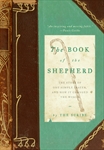 978-0061732300 – Hardcover – HarperCollins – $19.99
978-0061732300 – Hardcover – HarperCollins – $19.99
The Book of the Shepherd: The Story of One Simple Prayer and How it Changed the World is a beautifully written parable that made me think of writers like Paulo Coelho and Kahlil Gibran. The conceit of the book is that the author finds a manuscript in a house in Vermont, and has it translated, thus this story. It’s a short book, and an easy read, but of course, because it is a parable, the book demands to be re-read and thought about deeply.
The story has no distinct place or time. Joshua is the shepherd who is troubled by the code of “an eye for an eye” that governs his world. He has a dream about “a new way” and sets off on a quest to find it.
Stone the builder who erects a house that falls on its occupants. Sever the hands of the criminal who pilfers livestock or grain or another’s garment. Whip the child who defies an elder. For such is the law and the law must be obeyed.
For generations, these ironclad rules had governed the people. Nobody questioned whether it was right to humiliate a child or execute a murderer. An eye for an eye was the way of the world.
But was there another way?
Joshua is accompanied by Elizabeth, a former slave who is kind and generous, and David, a boy who must learn to walk in new shoes. Joshua believes that “an age of miracles” will come when the new way is found.
As with any quest, there is adventure along the way. En route to a cave near the Great Inland Sea, the travelers meet a number of interesting and compelling characters, including the Storyteller, the Apothecary, the Blind Man, and the Stranger. Each passes on an important lesson as the travelers journey toward what we realize is their destiny. At the cave, Joshua must see if he can bring forth secrets long buried. But he, Elizabeth, and David will discover that what they have been searching for has been inside them all along. In the end, The Book of the Shepherd is compelling and meaningful, whatever your political, social or religious outlook or beliefs. It’s not heavy handed or preachy, and even for many secularists, will be well worth the investment of time to read.
Joann Davis is an experienced writer and former book editor. She is extremely articulate and passionate about her work, and was a pleasure to interview. We talked about her work as a writer, her own spirituality, and how The Book of the Shepherd can change people and the world for good.
Podcast: Play in new window | Download
William Gladstone: The Twelve (a novel)
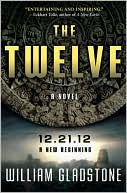 978-1593155568 – Hardcover – Vanguard Press – $19.95
978-1593155568 – Hardcover – Vanguard Press – $19.95
William Gladstone, author of the new novel, The Twelve, interviewed by Writerscast host David Wilk.
The Twelve is a terrific first novel by an experienced book industry professional, west coast based William Gladstone. I know the author personally, and I’ve read this novel at various stages of its development. In its final published form, it has become a compelling read on a subject of great interest to many people – the future. It’s a book with a strong spiritual message but one that does not get in the way of its fast moving and intriguing story.
The publisher’s description of the book goes like this: “The Twelve is an extraordinary and unforgettable novel about a most unusual man. As a child, Max lives in a world of colors and numbers, not speaking until the age of six. As an adult, Max ventures on a journey of destiny to discover the secret behind the ancient Mayan prophecy about the “end of time,” foretold to occur on December 21, 2012.
When he is fifteen years old, Max has a near death experience during which he has a vision that reveals to him the names of twelve unique individuals. While Max cannot discern the significance of these twelve names, he is unable to shake the sense that they have deep meaning. Eight years pass before Max meets the first of the twelve.
With this, Max’s voyage of discovery begins, as he strives to uncover the identities and implications of “the twelve”—individuals he will meet during his journey towards truth, all of whom seem connected, and all of whom may hold the answer to what will happen at the exact moment the world may end. The novel takes the reader on a series of global adventures, culminating in a revelation of why and how Max and the twelve are destined to unite to discover the magnitude of the meaning of December 21, 2012. Only the twelve can provide the answers, as the fate of all humanity rests in the balance.”
In my fast-paced interview with author Gladstone, we talk about the genesis of the novel, his sense of the meaning of the book, and what the future holds for humanity.
Podcast: Play in new window | Download

